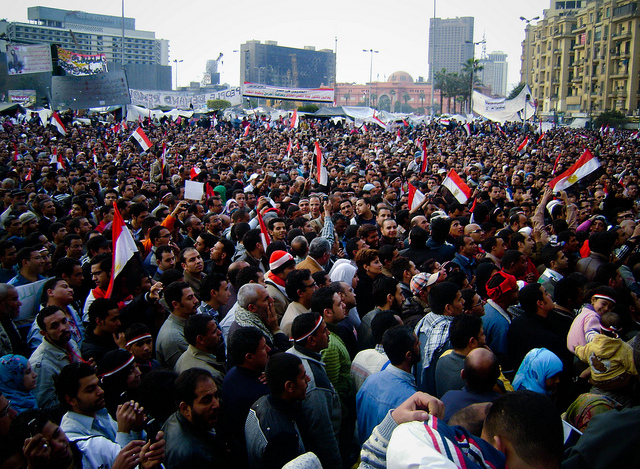
Ken Stein
August 26, 2013
There is never a dull moment on Israel’s doorstep. Lessons from the overthrow of the Morsi government in Egypt, the restart of Palestinian-Israeli talks, and the civil war in Syria remind us how difficult it is to judge whether American engagement is good or bad in the long run. Some issues require immediate action; others, patience. Policy initiatives are tied to a clock and a calendar. With the Morsi government’s overthrow, patience was demanded to see if the army would sort things out inside Egypt. No one wants to see Egypt’s already troubled economy take another dip downwards. Was withholding military and foreign aid even temporarily a wise political choice commensurate with American national interests? Whether defined as a coup against Morsi or not, the reality remains that Morsi’s politics and policies, as judged by Egyptians, were hijacked by a single, rather than a pluralistic, view of tomorrow’s Egypt. (If you want to read regularly about the changes taking place in Egypt, I suggest looking at al-Ahram weekly). The articles on this site are generally informative and incisive.
Secretary of State Kerry’s perseverance was necessary to restart Palestinian-Israeli talks; patience and determination will also be needed to reach agreed solutions to outstanding issues (borders, settlements, Jerusalem, prerogatives of a Palestinian state, relationship between the states, security issues, and economic necessities). The difficulty remains, will leaders exercise required political will?
The objectives of the negotiations are to reach a framework agreement that will lead to a two-state solution. The two-state solution is the most widely endorsed framework for undertaking Arab-Israeli negotiations since the UN in 1967 supported the sovereignty and territorial integrity of all states and their right to live in peace. Elsewhere, I have written in detail about the renewal of negotiations.
Pre-Negotiations and Political Realities Frame Israeli-Palestinian Talks, Policy Watch 2116, August 14, 2015
Political Views of a Two-State Solution, Policy Watch 2118, August 15, 2013
In the end, can Abbas make agreements that will satisfy a broad political spectrum within the Palestinian community? And can they stick, just as Sadat and Mubarak sustained the Egyptian treaty with Israel? Will the Israeli people consent in a referendum to the terms of agreements presented by Israeli negotiators? All final status issues boil down to two questions: Will the Palestinian leadership be able to say once and for all that it does not want all of the land west of the Jordan River and accept Israel as a Jewish state; and will the Israeli leadership and general public take a calculated risk to leave portions of the West Bank and draw borders that still maintain Israel’s security, now and into the future?
Maybe in nine months only several small agreements will have been signed between the sides, but perhaps they point to a way forward. For if there is to be a way forward, both Israelis and Palestinians must believe that the present status quo must be changed, because it could be worse tomorrow.
Finally, in deciding whether and how to intervene in the Syrian Civil War, American patience has not gained Washington any strategic advantage. For 27 months, we chose not to actively engage in breaking the Iranian, Syrian, Hizbollah connection. Washington waited for the Assad regime to cross a “red line” with its use of chemical weapons. And at the end of August 2013, we learned that substantial quantities of chemical weapons were used in a civil war that has already caused 100,000 deaths and more than 650,000 refugees.
Will the American decision to dither and procrastinate in intervening with Arab League and EU allies to remove Assad be proven decidedly wrong? Hindsight can always be 20-20. In the broader context of American presence in Iraq and Afghanistan during the previous decade, did it limit Washington’s options to intervene in some effective manner? And if the Assad regime knew at the end of the day, that the U.S. would be extraordinarily reluctant to use real force, then perhaps that was a key signal for an already steadfast Assad regime to dig in its heals further, to keep Russia, Iran, and China as its close allies, even if the method for remaining in office included brutalizing its own population. Did U.S. non-action help shape Assad’s view?
